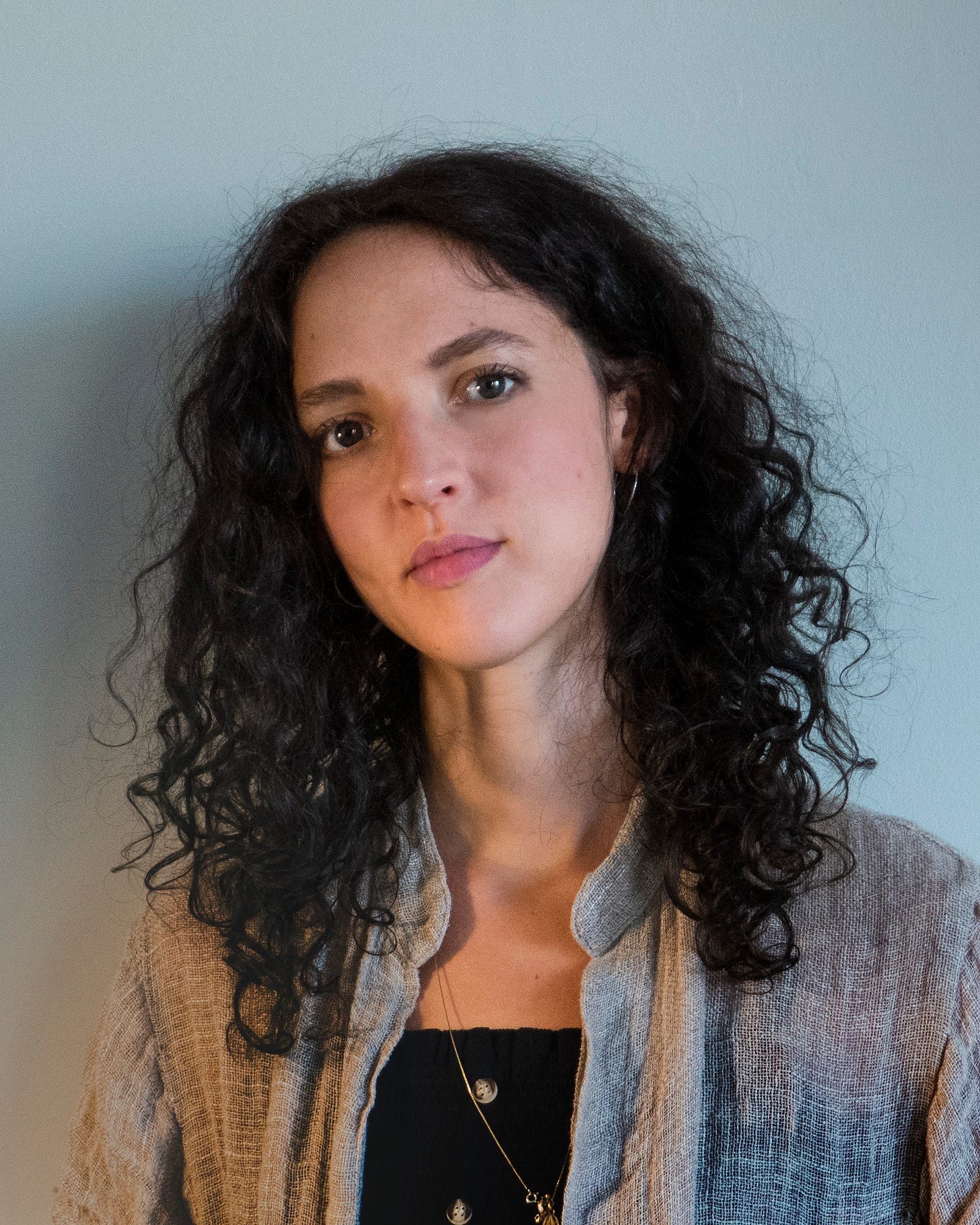In praise of Isabella Hammad
Gaza should propel us to collide with the truth.
The great novelist Isabella Hammad. (Elizabeth van Loan)
Over the weekend, I read Recognizing the Stranger: On Palestine and Narrative by Isabella Hammad.
The bulk of this short book is the text of a lecture which Hammad delivered in September last year. Interspersed with her sharp observations on fiction, you can find some crucial facts.
They serve as a reminder that – contrary to impressions conveyed by the corporate press – the situation was already horrifying long before 7 October 2023.
“We see so-called suicide drones deployed on Palestinian populations in Gaza,” Hammad writes. “We witness helicopters dropping bombs on West Bank towns, sights not seen in 20 years.”
The lecture was delivered in memory of the great Palestinian scholar Edward Said. Its text is followed by Hammad’s reflections on the first few months of the Gaza genocide.
Hammad confesses that she can only look for a few seconds at the images of “children with destroyed faces” which appear on our mobile phones. Quoting the poet Mahmoud Darwish, she nonetheless underscores why Gaza should propel us “to erupt and collide with the truth.”
“The Israeli government would like to destroy Palestine, but they are mistaken if they think this is really possible,” Hammad writes.
“Do they really believe they can obliterate the Palestinian will to life?”
Extra poignancy
Although it was only published in 2023, Hammad’s Enter Ghost is among my favorite novels of all time.
As it tells a story about performing a William Shakespeare play in Palestine, Enter Ghost has – for me, at least – assumed an extra poignancy since Israel assassinated Refaat Alareer last December.
Refaat taught Shakespeare at the Islamic University of Gaza. For a taste of his classes, I strongly recommend the anthology Light in Gaza.
In his contribution to that book, Refaat addressed the challenges he encountered teaching The Merchant of Venice.
Despite how his students initially felt that the Shylock character was “beyond repair,” they came to realize he was a victim of profound injustice and to identify strongly with his question “hath not a Jew eyes?”
Indeed, one student empathized so much with Shylock’s speech that she altered it to ask “hath not a Palestinian eyes?”
I edited the two final articles that Refaat submitted to The Electronic Intifada before his assassination.
The first dealt with how Refaat and his family’s home in Gaza City had been bombed. The second recounted their experiences taking shelter at Rantisi children’s hospital.
As we approach the first anniversary of Refaat’s murder, I am issuing a gentle appeal that both articles be shared widely, particularly the second one. It exposed an Israeli propaganda exercise as a blatant lie.
The Israeli army had alleged that the basement at the children’s hospital was being used to store arms for Hamas and that some Israeli hostages may have been held there. While CNN and other Western media outlets were escorted to that basement by Israeli soldiers, Refaat visited it on his own initiative.
The basement was not being used for any of the purposes Israel alleged. Instead, it was being used to cook rice for the huge numbers of displaced people then inside the hospital.
Just after I published his article on 19 November 2023, I sent a brief message to Refaat.
“I can’t imagine what it’s like for you and your family at the moment,” I wrote. “Really hope you are ok.”
Refaat would have been justified in taking issue with my choice of words. How could he be ok when a war of extermination was being waged against his people?
But in all of our interactions, Refaat was unfailingly calm and courteous. And so he replied with a folded hands emoji.
That was my last contact with him.



/|\